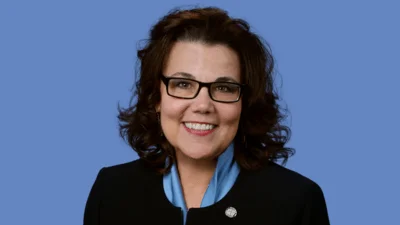The highest priority groups to receive the COVID-19 vaccine are frontline health care workers and MIchigan residents over the age of 65. | Stock Photo
The highest priority groups to receive the COVID-19 vaccine are frontline health care workers and MIchigan residents over the age of 65. | Stock Photo
In Michigan, there are serious concerns about who has access to COVID-19 vaccines and who doesn't.
At the state’s largest health system, Beaumont Health, there were thousands of individuals scheduled to get their COVID-19 vaccinations -- in spite of the requirement that they work in clinical settings. There were 2,700 to be exact, and those appointments were cancelled when the hospital learned that there was a backdoor shortcut that had allowed people to sign up for vaccinations who were not yet eligible.
Across the country, the guidelines for who gets vaccinated and when are more of a patchwork than a standard, and not they're easy to enforce. That means that those who have connections have been able to take advantage of loopholes that allow them to get vaccinated ahead of individuals who fit the current categories for vaccination.
Those loopholes and people’s ability to use them has made the vaccine distribution process subject to criticism and distrust.
“We are now seeing the result of systems that seem to generate paperwork more than care. And those who are not in the system are left behind,” Dr. Arnold Monto, a University of Michigan epidemiologist who studied the safety of the Moderna and Pfizer vaccines, told Bridge Michigan.
Hillsdale Hospital allegedly offered leftover vaccines to faculty and staff of Hillsdale College, which skipped the priority population -- residents in the community who are 65 and older. Hillsdale Hospital said that they received double the number of vaccinations that they ordered, but they gave some of the extra doses to long-term care facilities. And instead of stockpiling the leftover vaccines, offered the extra doses to the college before the Jan. 6 announcement that the next in line for vaccination were residents in the 65-and-older category.
“When we had remaining vaccines, we had two choices: leave them in a freezer until the state moved tiers or come up with a plan to use them as quickly as possible,” hospital president and CEO J.J. Hodshire said, according to Bridge Michigan.
In Ohio, as of Feb. 1, more than 20,000 individuals who were vaccinated did not live in there, according to the state’s dashboard. In Michigan, 5,753 individuals from other states have received at least one COVID-19 vaccine dose, according to Michigan’s COVID-19 Vaccine Dashboard.
Sparrow Hospital in Lansing has also been criticized for running a limited clinic that allowed Andy Schor, mayor of Lansing, and city employees to get vaccinated before the general public.
Community partners -- like the city of Lansing, a food bank and school districts, among others -- received an invitation for any staff member to come to a small vaccine clinic if they were part of the 18 priority groups, including teachers, police and firefighters. John Foren, Sparrow spokesman, said the hospital put the responsibility on the partner groups to ensure that only individuals in the priority group were eligible. He also said that lab staff is busy with paperwork and vaccinations to cast a critical eye and serve was “vaccination police.”
Beaumont Health, though, is taking a different stance, a stronger stance against those who attempt to jump the line to get vaccinated. It has sent randomized invitations to sign up for vaccinations for those who have online Beaumont accounts, and when the organization realized there was a surge and most of the people who used the link were not in the priority group, Beaumont Health shut down its system and cancelled those appointments.
“We took the stance that it wasn’t fair to be cutting in line, no matter if you’re qualified or not,” said Hans Keil, Beaumont’s chief information officer. “We’re trying to be really careful and have an ethical framework in that regard.”
The Michigan Department of Health and Human Services (MDHHS) issued statements in the Hillsdale and Sparrow situations: “We do not want providers to waste vaccine and would rather they provide vaccine to someone outside of the prioritization groups as opposed to throwing it out if, it comes down to it,” MDHHS's statement said, according to Bridge Michigan. “No shot in the arm is ever wasted as getting this vaccine is our way out of the pandemic and returning to some sense of normalcy.”


 Alerts Sign-up
Alerts Sign-up